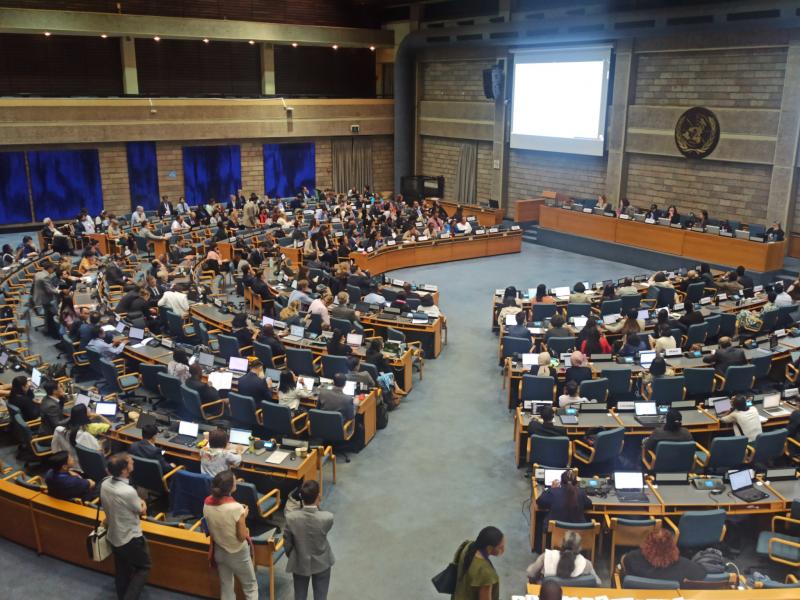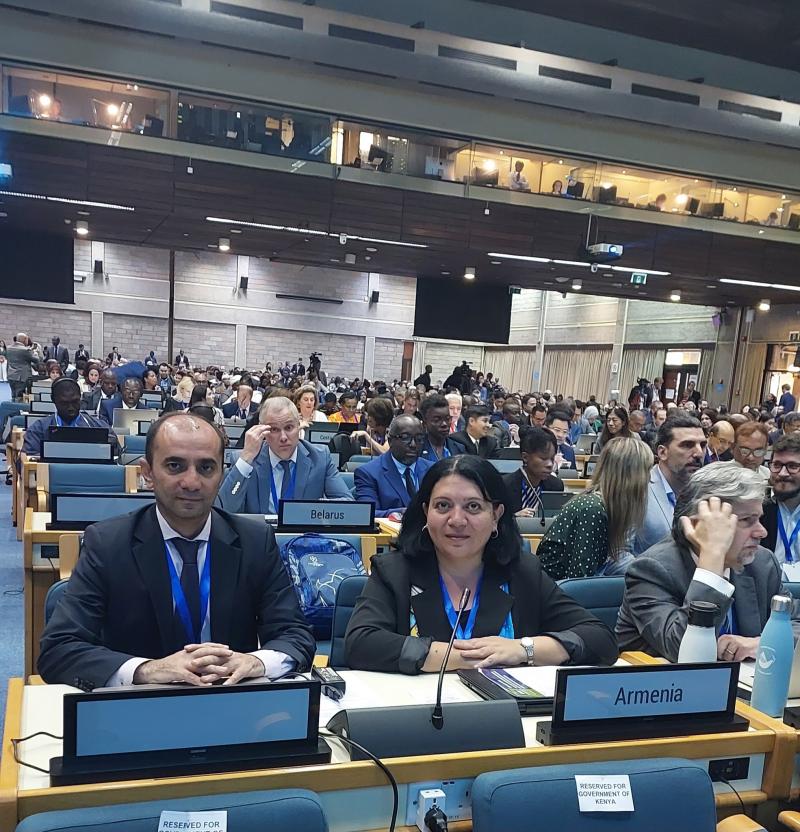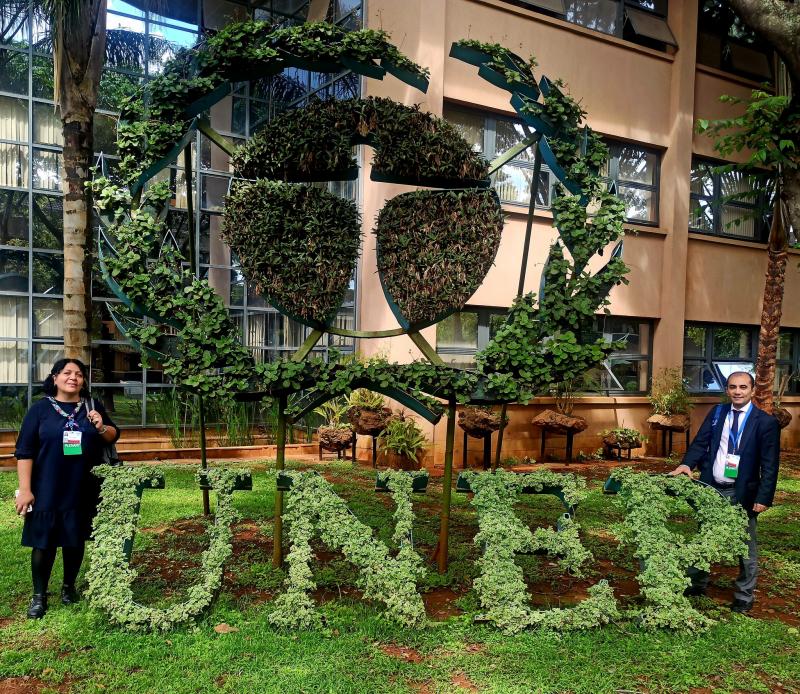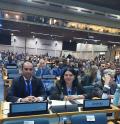The 3rd session of the intergovernmental negotiating committee formed in order to develop an international legally binding instrument on plastic pollution initiated by the United Nations Environment Program is underway in the city of Nairobi, Republic of Kenya.
Deputy Head of the Department of International Cooperation of the Ministry of Environment, Arsen Nikoyan, and Chief Specialist of the Strategic Policy Department, Mary Harutyunyan, are participating in the 3rd session of the Intergovernmental Negotiation Committee (INC) formed to develop an international legally binding instrument on plastic pollution in Nairobi, Kenya, from November 13 to 19. .
The main goal of the meeting is to ensure that in 2022 adopted by the UN Environment Assembly in March, "End plastic pollution. towards an international legally binding instrument" the process of implementing resolution 5/14 through the discussion and clarification of the zero draft of the international agreement on plastic pollution.
The main topics discussed during the session are:
- outlining the possible goals and regulatory framework for a zero-draft international agreement on plastic pollution (including reducing plastic pollution, protecting human health and the environment from the adverse effects of plastic pollution throughout the life cycle of plastic),
-discussion of main liability options,
- outlining mechanisms for providing financial and technical assistance,
- conducting research and analysis, etc.
The Armenian delegation participated in the discussions planned for the agenda of the session, in particular the following points of view were highlighted and expressed by the delegation.
- The zero draft of the international agreement on plastic pollution developed within the framework of the process is a starting point for conducting effective negotiations,
- The future agreement/FA/ should regulate the entire life cycle of plastic and the sustainable management of plastic waste.
- Countries with economies in transition should have access to financial resources for IT implementation, capacity building and technology transfer,
- Implementation of scientific and technical innovations aimed at prevention and reduction of plastic pollution in all components of the environment (water, soil, biodiversity, air, ecosystems) has become important.
- It is preferable to create a new targeted multilateral fund for the implementation of the goals of the EU.
- Consideration of the Extended Producer Responsibility (EPR) system as the main tool for the implementation of PC.
The main outcome of the meeting is expected to be the development of a preliminary version of the international agreement on plastic pollution and the outline of further work ahead of the 4th session of the IPC to be held in April 2024.







